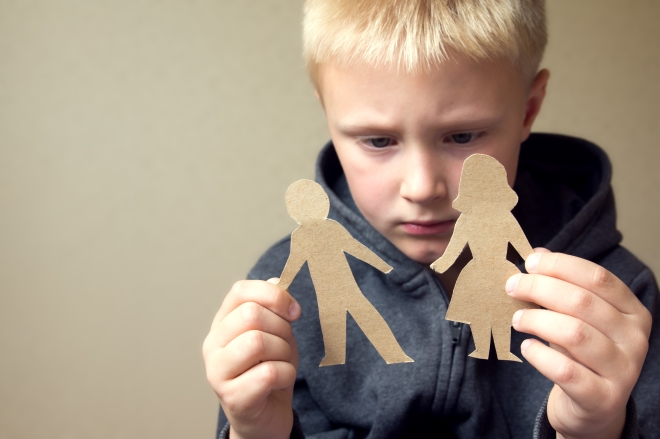Protecting Your Children During Divorce
Five Ways of Protecting Your Children During a Divorce
There’s no doubt a divorce can be a stressful time for both parents and kids. While it’s probably impossible to make a divorce completely stress free, there are several things you can do to minimize the impact a divorce has on your children.
A Team Effort
One of the best things you can do during a divorce is to make sure your children are still cared for and both parents continue to support them. In a child’s eyes, a divorce means loss and uncertainty.
A child may not be able to live with both parents. Additionally, they may not see one parent as much as the other.
It may seem like they’re losing the family they once had. This can lead to serious feelings of insecurity and/or depression.
When kids see their parents are still able and willing to work together, it may make this sense of loss less severe. Circumstances like living arrangements and time spent with a parent may change, but the parental level of support and devotion should remain constant.
There are often many disagreements during a divorce. However, if you can be amicable about issues of custody, visitation and other legalities surrounding the kids, things will be much easier on them.
Put Children First
Too often, divorces become battlegrounds between spouses and parents as they try and claim and protect as much as they can from their former partner. Property division and child custody frequently become the most pretentious issues.
A caring, devoted parent wants the best for their child. You must be careful not to lose sight of this during the divorce.
Parents should put kids first when making decisions or arguments regarding custody, visitation or how each parent will support the child after the separation.
The court will often force this issue if parents cannot agree. All court-based decisions regarding custody or visitation are determined primarily by the best interests of the child.
Keep Talking
A divorce is a confusing and scary time for a kid. They may not understand why their parents are getting a divorce or what exactly is going on.
You should make every effort to explain, in age-appropriate terms, what is happening. Preferably, these discussions should be done together.
This shows the child their parents are making a mutual decision. It also shows they are still thinking about how to work out their differences in a respectful manner.
Reassure the Child
One common problem and cause of stress in children is feelings of fault or guilt related to a divorce. A child may naturally assume a divorce is their fault or their misbehaviors or problems somehow contributed to their parent’s fights or separation.
This can be very mentally damaging to a child if it isn’t addressed. You may sit down and reassure the child.
They may need counseling in more extreme situations or if they show signs of depression.
Avoid Litigation
There are many different ways to resolve a divorce. Some of these ways, such as a collaborative divorce or mediation, encourage parents to work together.
Choosing these divorce options can make things easier on children. They can bring out the best instead of the worst aspects of the parents and situation.
Many times, a collaborative divorce or mediation is also cheaper than a litigated divorce. Avoiding litigation does not mean avoiding the use or need of an attorney.
A divorce lawyer from a business like Divorce Matters is still an important part of the process.
They can ensure your rights are upheld and represented even during more informal divorce processes. They may also help draft or revise agreements to be sure they are a good fit for you and still agreeable to your spouse.
A successful divorce process that keeps children’s health and safety in mind can often be even more beneficial to the child than a prolonged period of argument and tension in the household.
While you may be delaying getting a divorce for the sake of your children, considering a healthy marital split may actually relieve tension and improve relationships.






